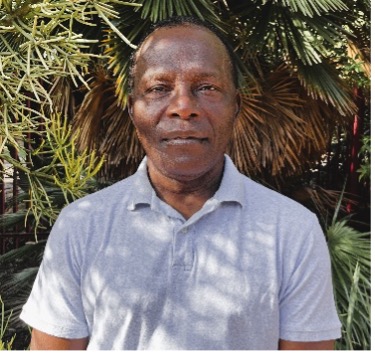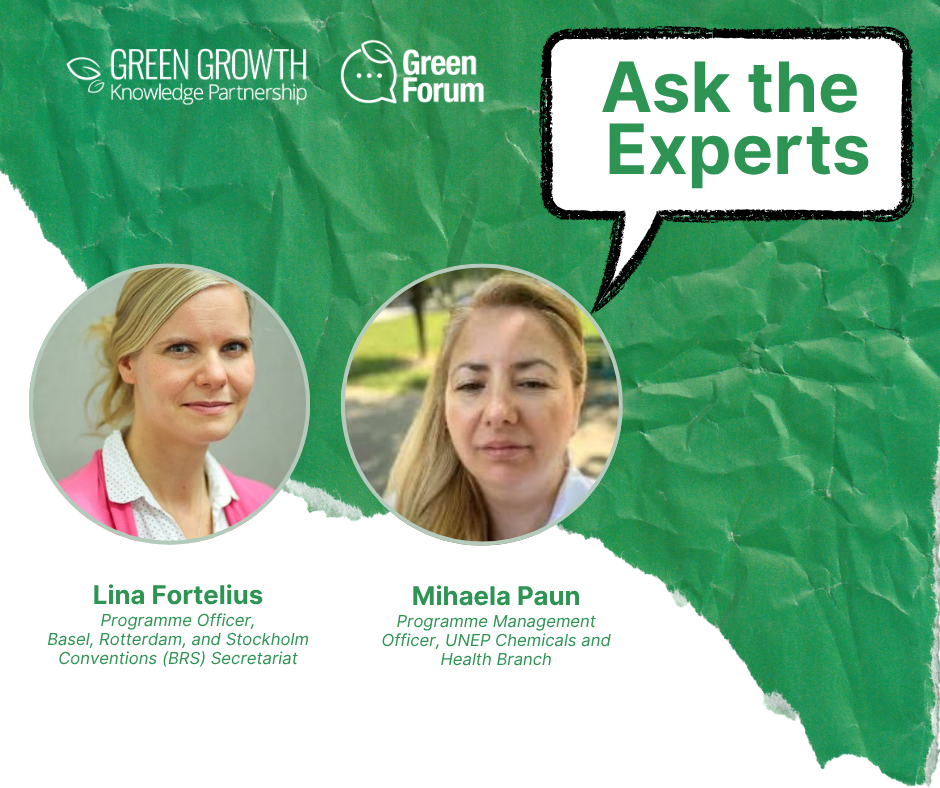This blog post is based on the remarks of Professor Jonathan O. Okonkwo on the Global Green Growth Knowledge Partnership (GGKP) roundtable “National Implementation Plans: Research needs and opportunities in Africa” held on 10 June 2025.
Persistent organic pollutants (POPs) pose significant challenges for environmental and public health in Africa. Over the years, Tshwane University of Technology (TUT) in South Africa has built a robust POP analysis capacity, contributing to research, training, and regional collaboration. This blog post traces the journey, achievements, and ongoing challenges in establishing and sustaining POPs research infrastructure in Africa.
Building Scientific Capacity for POPs Monitoring in Africa: The Journey of Tshwane University of Technology
For over two decades, the research team at Tshwane University of Technology has quietly but steadily built one of Africa’s leading hubs for the analysis of persistent organic pollutants (POPs) and other chemicals of concern. Nestled in Pretoria, South Africa, this university laboratory has become a beacon of innovation, training, and international collaboration—focusing not only on research excellence but also on sustainability and empowerment across the continent.
Advancing Analytical Frontiers
The laboratory has developed a broad suite of analytical procedures to support the assessment of both legacy and newly listed POPs under the Stockholm Convention. Key research areas include dichloro-diphenyl-trichloroethane (DDT)—particularly in human breast milk—along with polybrominated diphenyl ethers (PBDEs) in surface water, indoor dust, sediments, and landfills. Short-chain chlorinated paraffins (SCCPs), now recognised as an emerging concern, and polychlorinated naphthalenes (PCNs) are also under study. Innovative extraction techniques using eutectic solvents have enabled the detection of organophosphate flame retardants (OPFRs) with improved efficiency.
A recently completed three-year national PFAS monitoring programme has generated data from water resources across South Africa’s nine provinces. Students at the university continue this work, investigating compounds such as HBCDs, UV328, and dechlorane plus—while simultaneously contributing to the “African Plastics” project commissioned by the Basel Convention Regional Centre. That initiative analysed multiple POPs in plastic waste from five African countries.
From Quality Assurance to Capacity Retention
Meticulous quality assurance and control (QA/QC) protocols ensure the credibility of the laboratory’s work. Certified reference materials, rigorous cleaning procedures, and solvent-grade validation are standard practice. But technical excellence is only part of the story.
The laboratory is also a training ground for Africa’s next generation of environmental scientists. MSc and PhD students from countries including South Africa, Ethiopia, Ghana, Kenya, Tanzania, and Nigeria have honed their skills here. Yet many of them leave the continent after graduation—a persistent challenge of brain drain that threatens long-term capacity. Sustaining this talent pipeline requires not just training, but adequate funding, maintenance of high-end equipment like LC-MS and GC-MS, and meaningful career pathways in Africa.
A Regional Anchor for Training and Collaboration
Recognising these contributions, the United Nations Industrial Development Organization (UNIDO) designated TUT’s laboratory as a training centre for Least Developed Countries in COMESA and SADC regions. Here, professionals from countries such as Ethiopia and Sudan receive hands-on instruction in POPs sampling and analysis. The laboratory has also participated in UNEP-led interlaboratory studies on PBDEs in breast milk—demonstrating both scientific rigor and a spirit of collaboration.
Knowledge Generation and the Sustainability Imperative
Over 120 peer-reviewed articles and more than 4,500 citations later, the TUT team continues to shape the regional knowledge base on POPs. They use both targeted and non-targeted analytical approaches, discovering not only listed POPs but also new, previously unreported compounds. Their work informs national-level decisions, including water quality assessments and plastic pollution strategies.
“If we can support the little that we have, we will have the sustainability… What we need more is the support to the little that we have at the moment to be sustainable, and we can do quite a lot with the little we have.”
And this is what captures the core challenge: it is not only about building capacity but also about sustaining it. POPs research in Africa does not suffer from a lack of skill—but from inadequate infrastructure support and retention mechanisms for talent, says Professor Okonkwo.
TUT’s laboratory offers a clear case study of what is possible when investment, collaboration, and commitment converge. Its work with the Basel Convention Centre to analyse plastics from five African countries, using the same tools as global laboratories, proves that Africa is not only capable but competitive in chemical monitoring.
To fully realise this potential, Africa needs more investment in laboratory maintenance, support young researchers, and foster regional linkages. With sustained support, the continent can build a self-reliant ecosystem for POPs research and POPs data generation—contributing to both national policies and the global mission of the Stockholm Convention.
This blog post was developed drawing on insights from the GGKP roundtable “National Implementation Plans: Research needs and opportunities in Africa” held on 10 June 2025. As part of the Global NIP Update project (GEF ID 10785), funded by GEF and led by UNEP, this roundtable brought together researchers and experts engaged in reviewing and updating NIPs under the Stockholm Convention to foster peer learning on the development of POPs inventories.
To learn more about the Global NIP Update project, visit Global NIP Update | Green Policy Platform
For a deeper dive into the GGKP regional roundtable focused on Africa, you can access the full recordings and materials here: https://www.greenpolicyplatform.org/webinar/national-implementation-plans-research-needs-and-opportunities-africa
Authors:
 |
Professor Jonathan O. Okonkwo, Tswane University, South Africa
|
 |
Ms. Soomin Bae, Knowledge Management Support Consultant, GGKP/GGGI
|



